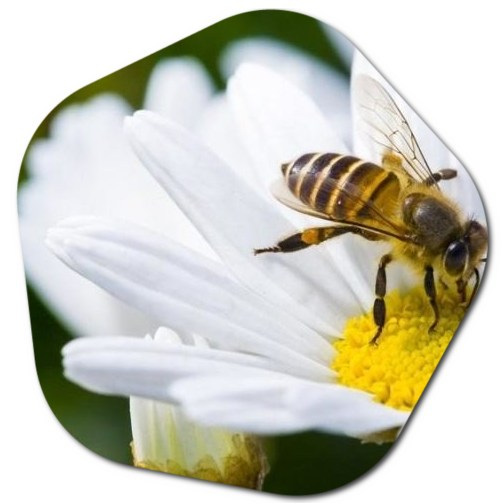Insects are a food source for many animals. Birds, reptiles, amphibians and fish survive by feeding on insects. Without insects, these animals would struggle to find food and their numbers would decline. Insects play an important role in breaking down plant and animal waste. Without insects there would be no apples, melons, almonds, broccoli, blueberries or cherries. We wouldn’t even be able to eat ice cream because even the alfalfa fed to cows is pollinated by insects. So without insects we would lack many essential elements of our lives.
What would happen without insects? Why are insects important for the world? What is the importance of insects for nature? Some insects break down plant and animal wastes and allow them to be mixed into the soil. Insects make an important contribution to biodiversity by pollinating flowering plants and help other living things to thrive by increasing plant diversity. If there were no insects in the world, it would have profound and far-reaching effects on ecosystems, food chains, and the environment as a whole. Insects play crucial roles in various ecological processes, and their absence would cause significant imbalances. Here are some of the potential consequences:
- Pollination: Insects, especially bees, butterflies, and other pollinators, are essential for the pollination of many plants, including crops that humans rely on for food production. Without insects, a significant portion of plant species would struggle to reproduce, leading to reduced crop yields and potential food shortages.
- Ecosystem Disruption: Insects are an integral part of terrestrial and aquatic food webs. They serve as a food source for many animals, including birds, mammals, and other insects. The loss of insects could lead to population declines in these species, disrupting entire ecosystems.
- Decomposition: Insects, such as beetles and flies, play a critical role in breaking down dead organic matter, contributing to the nutrient cycle and soil health. Their absence could result in a buildup of dead plant material and slower nutrient recycling, impacting soil quality and ecosystem health.
- Biodiversity Loss: Insects make up a significant portion of global biodiversity. Their disappearance would have cascading effects on other species that rely on them for food or habitat. This could lead to a decline in biodiversity overall.
- Medicine and Research: Insects have been used for medical research, providing insights into genetics, physiology, and disease transmission. Their absence could hinder scientific advancements in these areas.
- Economic Impact: The loss of pollinators would affect agricultural productivity and food production, potentially leading to higher food prices and economic instability in regions heavily reliant on agriculture.
- Pest Control: While some insects are pests, many insects play a role in controlling pest populations. Without their presence, pest species could become more abundant, damaging crops and vegetation.
- Aesthetic and Cultural Impact: Insects are part of the natural beauty of landscapes and play roles in cultural symbolism and art. Their disappearance could impact our connection to the natural world.

It’s important to note that the complete absence of insects is highly unlikely and would have complex consequences that could be challenging to predict accurately. Nonetheless, these examples underscore the critical roles that insects play in maintaining the health and balance of ecosystems and the importance of conservation efforts to protect their populations.
What would the world be like without insects?
Will the world be a better place without insect?, What wouldnt we have without insects?, Why are insects important to all life on Earth?, Can humans survive without insects?, Why do we need insects on earth?, Why would we die without insects?, Why would the world be a better place without insects?, According to the work of the world’s leading scientists, when insects are not on the ground, humanity and the world will be destroyed. Insects have great benefits to humanity and nature.

We understand that the insect species has been proven to have great benefits to nature and humanity. Insects have many economic and environmental benefits. Characteristic features of certain insects are used in the understanding of the general biological process. Many species of insects in nature, especially honeybees, that feed on pollen and nectar and which we call “pollinating insects”, help plants to reproduce. Especially ballerinas allow the reproduction of about 130 thousand different plant species in nature.
What would happen if there were no insects on earth? Albert Einstein says: If bees disappear from the earth, man will only have 4 years to live. Fertilization without bees, plants, animals, humans Not.
Jonas Salk says: If insects had disappeared, life on Earth would be over in 50 years. Of mankind has disappeared from Earth, within 50 years all life forms would have regenerated and evolved.
Can you survive without bugs?
As of my last knowledge update in September 2021, insects play vital roles in ecosystems, pollination, nutrient cycling, and more. Human survival is intricately connected to the health of ecosystems, which are maintained in part by insects. However, if you mean whether humans could physically survive without insects, the answer is yes, but with significant challenges and disruptions to the environment and food systems.
Here are a few points to consider:
- Food Production: Many crops that humans rely on for food, including fruits, vegetables, and nuts, depend on insect pollinators. Without insects, crop yields could drop, leading to food shortages and potentially impacting human nutrition.
- Ecosystem Health: Insects are essential for maintaining balanced ecosystems. They help decompose organic matter, control pest populations, and provide food for various animals. The absence of insects could disrupt the food chain and ecosystem dynamics.
- Biodiversity Loss: Insects represent a large portion of global biodiversity. Their disappearance could lead to cascading effects, impacting other species that depend on them for food or other resources.
- Medicine and Research: Insects have contributed to medical research and the development of various medicines. The absence of insects could slow down scientific advancements in these areas.
- Economic Impact: The loss of pollinators and insect-driven ecosystem services could affect agriculture, leading to higher food prices and potential economic instability.
- Aesthetic and Cultural Impact: Insects are integral to the natural beauty of landscapes and play roles in cultural symbolism, art, and biodiversity appreciation.
While humans could technically survive without insects, the resulting changes would likely have widespread and negative consequences for both natural ecosystems and human societies. It’s crucial to emphasize the importance of insect conservation and sustainable practices to maintain the delicate balance of our environment and ensure a more secure future.
Does Earth need insects?
Yes ofcorse, Earth relies on insects for numerous essential ecological functions. Insects play crucial roles in maintaining the health of ecosystems, promoting biodiversity, and supporting various life forms, including humans. Here are some key reasons why Earth needs insects:
- Pollination: Many flowering plants, including numerous crops that humans depend on for food, require insect pollinators to reproduce. Insects like bees, butterflies, and beetles facilitate the transfer of pollen between flowers, enabling plant reproduction and fruit production.
- Ecosystem Services: Insects provide ecosystem services that contribute to human well-being. They aid in decomposition by breaking down organic matter, which enriches soil and recycles nutrients. This supports the growth of plants and sustains the entire food chain.
- Biodiversity Maintenance: Insects make up the majority of species on Earth. Their diversity and abundance support other species that depend on them for food, habitat, and other ecological interactions. The loss of insects can lead to cascading effects throughout ecosystems.
- Food Chain: Insects are a critical component of food chains. They are prey for many animals, including birds, mammals, reptiles, and amphibians. Removing insects could disrupt the predator-prey dynamics in ecosystems.
- Pest Control: Some insects act as natural predators of pests that can damage crops and plants. Without these predator insects, pest populations could increase and harm agricultural productivity.
- Nutrient Cycling: Insects contribute to nutrient cycling by breaking down dead plants and animals. This process releases nutrients back into the soil, which benefits plant growth.
- Research and Medicine: Insects have provided valuable insights into scientific research, genetics, and medical advancements. Studying insects has led to discoveries in areas like genetics, disease transmission, and drug development.
- Cultural and Aesthetic Value: Insects are essential to the beauty of natural landscapes and have cultural significance in art, literature, and folklore. They contribute to our connection with nature.
In summary, insects are essential for the functioning and balance of ecosystems. The well-being of Earth’s ecosystems, biodiversity, and even human societies is interconnected with the presence and health of insect populations. Conservation efforts aimed at protecting insects and their habitats are crucial for ensuring the sustainability and health of our planet.
